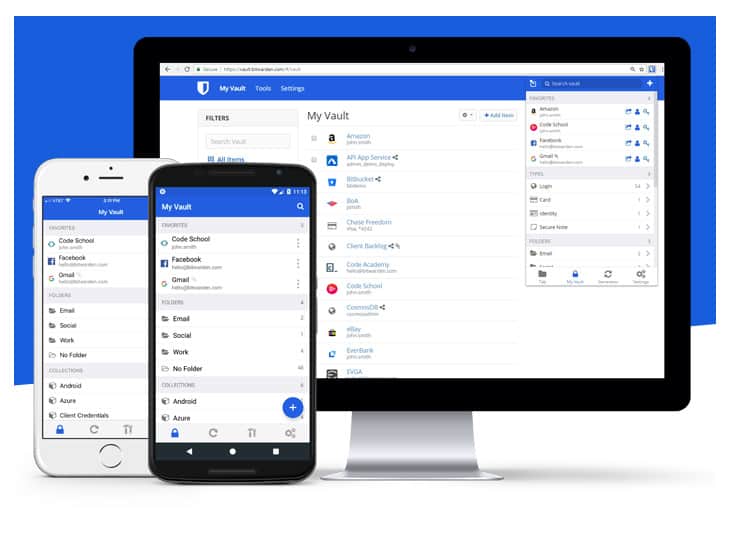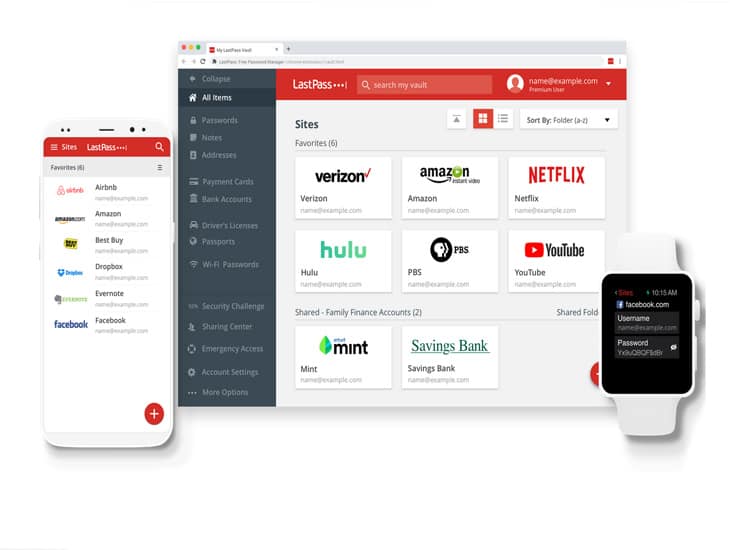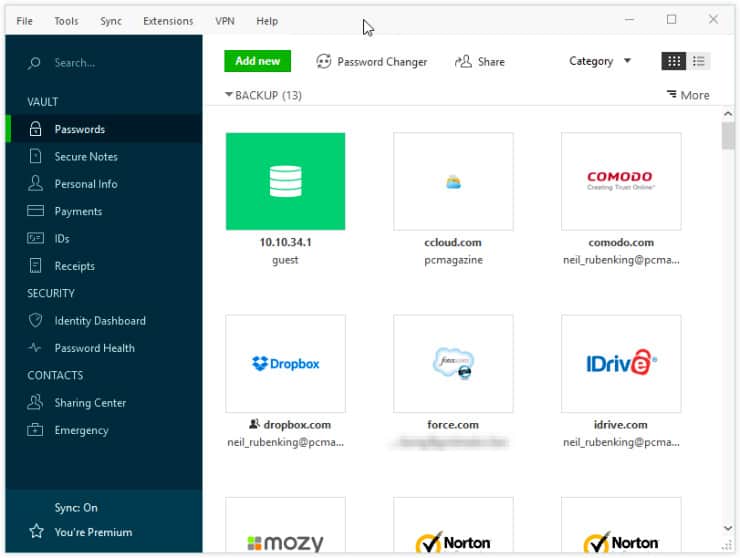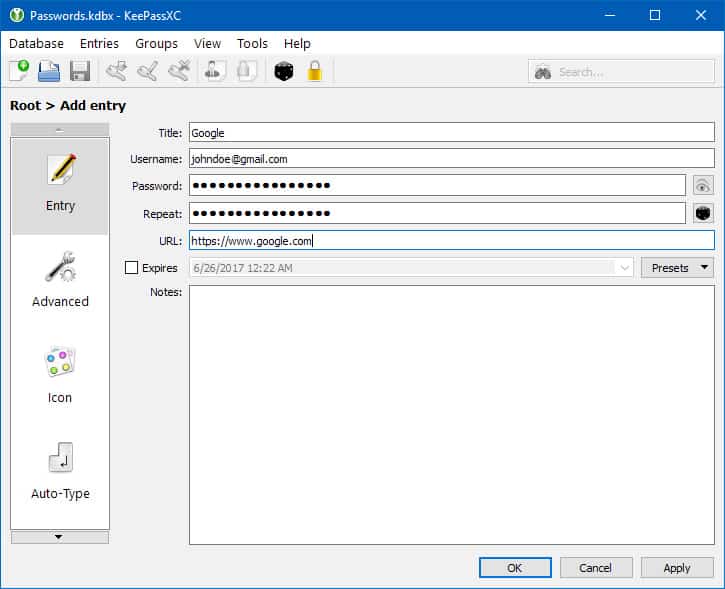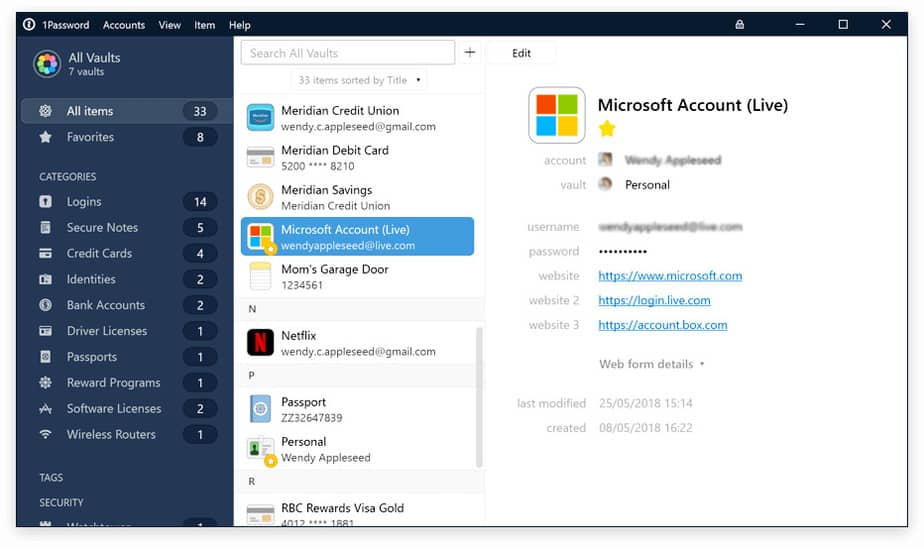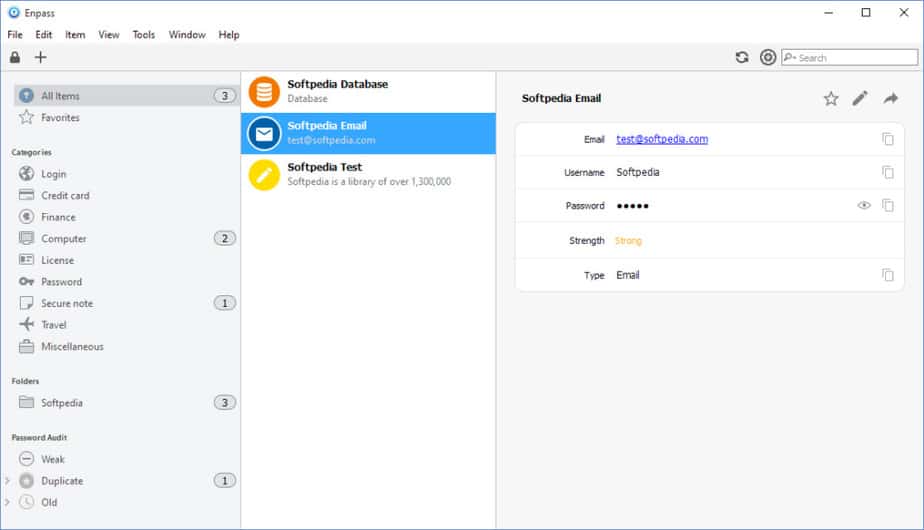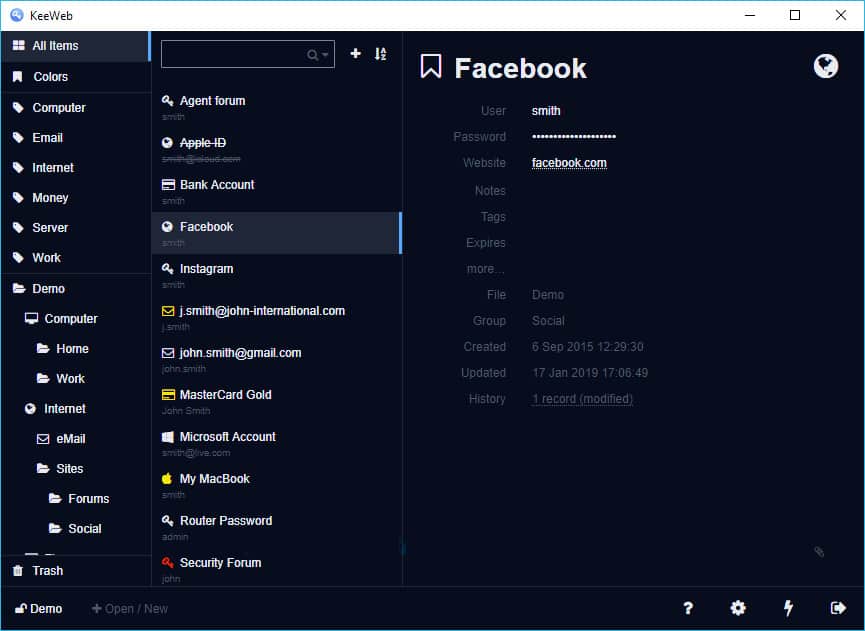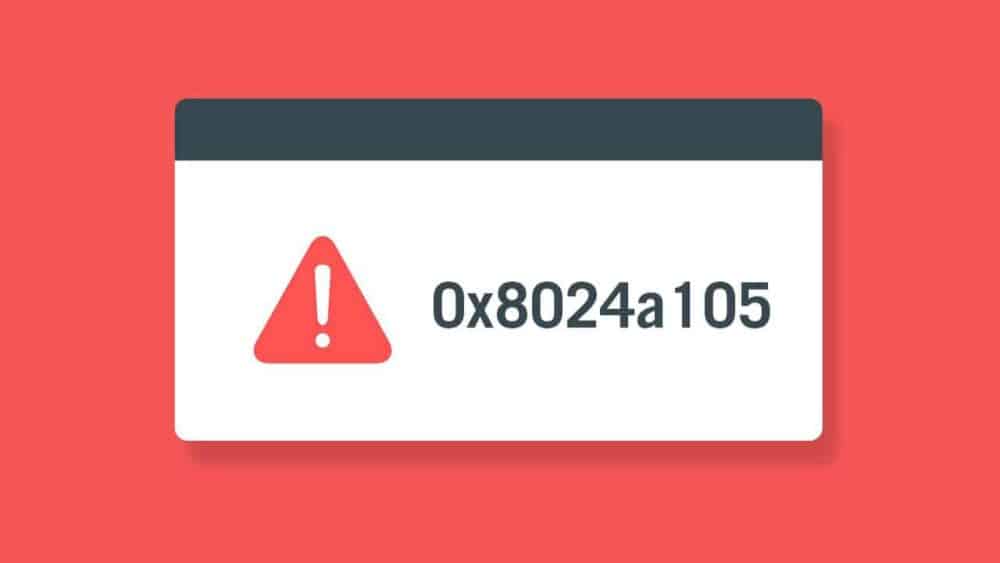
Best Password Managers For Your Online Accounts. The only way of protecting your online accounts from cyber criminals are your passwords. Suppose you’re like the majority of people. In that case, you reuse the same weak passwords over and over again, developing a ticking time bomb that can blast at any moment and leave your personal information completely exposed.
Not Satisfied yet? Then think about that compromised passwords was liable for 81% of hacking-related breaches in 2018, according to the Verizon Data Breach Occurrence Report. The figure is so high because 65 percent of individuals utilize the same password for multiple or all accounts, as was exposed by an online security survey by Google in 2019.
If you do not want to become a cybersecurity statistic, you should use a different complex password for your accounts. A password manager can assist you in accomplishing this job and dealing with other significant advantages.
Advantages of Using Password Managers
There are so many causes why you should use a password manager. Let’s take a look at them:
Consider just one password:
With a password manager, you have to keep in mind only one password to access your password vault. Other passwords can be either briefly copied from the vault or filled automatically by the password manager. Given that there’s just one password to bear in mind, you can make it more complicated and, therefore, much safer.
Usage more strong passwords:
Similarly, a password manager allows you to make all of your passwords bullet-proof because you don’t have to remember them. Instead of depending on numerous mnemonic strategies, using passwords based on expected dates or the names of individuals who are close to you, nothing is stopping you from creating random passwords consisting of letters, numbers, and unique characters.
Directly login to your accounts:
A capable password manager ought to be able to fill out your login information for you– both on your desktop computer and smart device.
When operating in a group, sharing a single account with family or friends, it’s typically beneficial to share a password safely. A password manager can help you track who you have shared your passwords with, so you can keep your security under control.
Change your passwords shortly:
Security experts no longer suggest using expiring passwords. As long as you use a specific password for each of your accounts, you can keep using the password up until there’s a factor to change it. Typically, that reason is a security breach, and a password manager with a breach alert function can be the difference between a timely password change and a hacked account.
Store sensitive data:
In addition to passwords, password managers can save other individual details, like essential contracts, your credit card number, or directions to hidden treasure.
Are Password Managers Safe?
The brief answer is: yes, They are secure, and you need to use them to make it considerably more difficult for hackers to breach your accounts and get sensitive details from you.
The standard password managers store your passwords in an encrypted database that can be decrypted just after the right master password has been provided. Even though hackers managed to steal the whole encrypted database, they wouldn’t draw out any password from it.
As long as you utilize a strong master password and don’t write it anywhere, a password manager will always be much more secure than reusing the same weak passwords many times.
Best Password Managers For Your Online Accounts
A password managers can assist you in accomplishing this job and dealing with other significant advantages.
1. Bitwarden
Our preferred password manager is in December 2019 since it’s a protected, totally free, and open source. It works on Windows, macOS, Linux, Android, and iOS, and there’s also a web version that you can access from any gadget with a modern web internet browser.
To get initiate with Bitwarden, you do not need to invest any money. Still, there’s also a premium version with a few extra functions. Just $10 a year, the premium version consists of 1 GB of encrypted file storage, additional two-step authentication options, password hygiene and vault health reports, TOTP authenticator key storage, and code generator, and top priority customer assistance.
However, even the free version of Bitwarden includes whatever you need to produce safe passwords, securely save them in the cloud, and get access to them from any device. It secures all passwords with end-to-end AES-256 bit file encryption, salted hashing, and PBKDF2 SHA-256, which are military-grade file encryption requirements used by federal governments around the world to secure some of the most delicate info around.
2. LastPass
It is a popular multi-platform password manager with extensions for just about every internet browser. You can either utilize the free version of LastPass or purchase the premium subscription plan for $3 a month. Updating to LastPass Premium opens emergency access to your crucial details in case of an emergency, one-to-many password sharing, advanced multi-factor alternatives, priority consumer support, password autofill on Windows devices, and 1 GB of encrypted file storage.
Because LastPass has been around considering that 2008, it shouldn’t come as a surprise that it experienced many security occurrences in the past. What’s important is that no security occurrence caused encrypted user vault data to be exposed. LastPass was always fast to take appropriate steps to avoid similar incidents from occurring once again in the future.
3. Dashlane
Apart from being among the most active YouTube sponsors, Dashlane is an excellent password manager that can offer a sleek interface, friendly prices, perfect autofill, multiple two-factor authentication alternatives, and an extensive knowledge base that discusses all of its functions and covers lots of different security-related subjects.
Unlike the previous two password supervisors, Dashlane requires its users to buy a premium membership since the free plan is limited to 50 password entries, which may sound like a lot, but it is not sufficient.
The premium subscription package costs $3.33 a month. It gives you endless password storage, the ability to integrate your passwords across all devices, dark web tracking with customized signals, VPN for Wi-Fi protection, and concern customer assistance.
4. KeyPassXC
KeePassXC is an open-source password manager that permits you to safely keep an encrypted database with all your passwords on your Windows, macOS, or Linux computer system. It’s a fork of another famous password manager called KeePassX, a fork of the initial KeePass.
KeyPassXC is free, and you can use it on as numerous computers as you want. Its most significant restriction is that it does not support password synchronization, so you require to develop your solution. Many KeyPassXC users depend on Dropbox, Google Drive, or Microsoft OneDrive to keep their passwords integrated into between devices. In contrast, others use a USB flash drive or a networked storage device.
5. 1Password
1Password is a sophisticated password manager that provides a value-oriented subscription plan for a familiar that understand the significance of using strong passwords. It’s readily available throughout Windows, macOS, iOS, and Android, with all versions being equally easy to use.
1Password has an automatic kind filler that enables you to sign in with a single click. The Watchtower feature proactively keeps an eye on password breaches and lets you know if any services you’re using has been compromised.
While you can try 1Password free of charge, there’s no open plan to pick when the trial duration is over. The most budget-friendly subscription plan costs $2.99 a month, but you must consider the more expensive family plan ($4.99), which lets you share your membership with as much as five other individuals.
6. Enpass
It is a reasonably fundamental password manager with assistance for most platforms, a robust password generator, and the choice to protect your information by fingerprint or facial recognition. It saves passwords locally on your device, but it also permits you to integrate them via any cloud account, such as Dropbox, Google Drive, or Box.
Enpass has a distinct rate structure since it’s free to utilize with no significant desktop devices; however, not on mobile devices. If you want to save more than 25 passwords on a device, you need to buy the premium plan for $1.49 a month or $17.99 each year.
There’s also a one-time purchase choice, which unlocks full gain access to mobile devices and desktop for a single cost of $53.99. We suggest picking the former purchase option just when you’re 100% certain that Enpass is the right password manager for you.
7. KeeWeb
KeeWeb is a free password manager based upon KeePass. It has an exceptional looking interface with advanced search options. KeeWeb assistance for shortcuts, password history, tags, and the capability to include attachments by merely dragging and dropping them right to the application.
The desktop version of KeeWeb works on all significant platforms, and the online version is accessible from any modern-day web internet browser. KeeWeb allows you to open files from Dropbox, so you can easily integrate your passwords throughout devices. Since KeeWeb always saves files for offline use, you will be able to recover your passwords even if something occurs with Dropbox.
